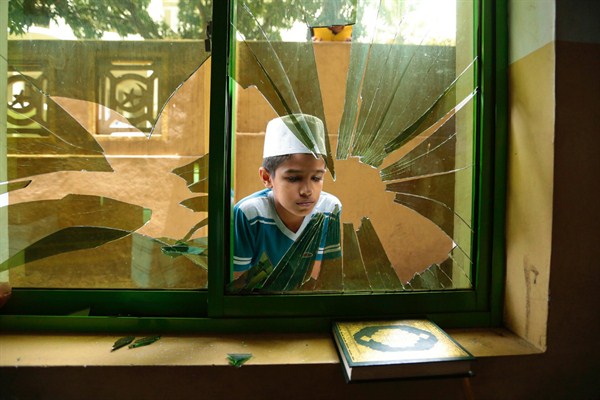Editor's Note: This article is part of an ongoing series about religious minorities in various countries around the world.
On March 6, Sri Lanka’s government declared a nationwide 10-day state of emergency as mob attacks targeted the country’s Muslim minorities. Tensions have been rising over the past year between Sri Lanka’s Sinhalese majority, who are mainly Buddhist, and Muslims, leading to attacks on businesses, homes and places of worship. In an email interview, Neil DeVotta, a professor of politics and international affairs at Wake Forest University in North Carolina and an expert on ethnic conflict in South Asia, explains what is behind the tensions and why the government has done more to fan the flames than put out the fire.
WPR: What is the historical relationship between Buddhists and Muslims in Sri Lanka, and what is driving recent tensions between them at this time?

